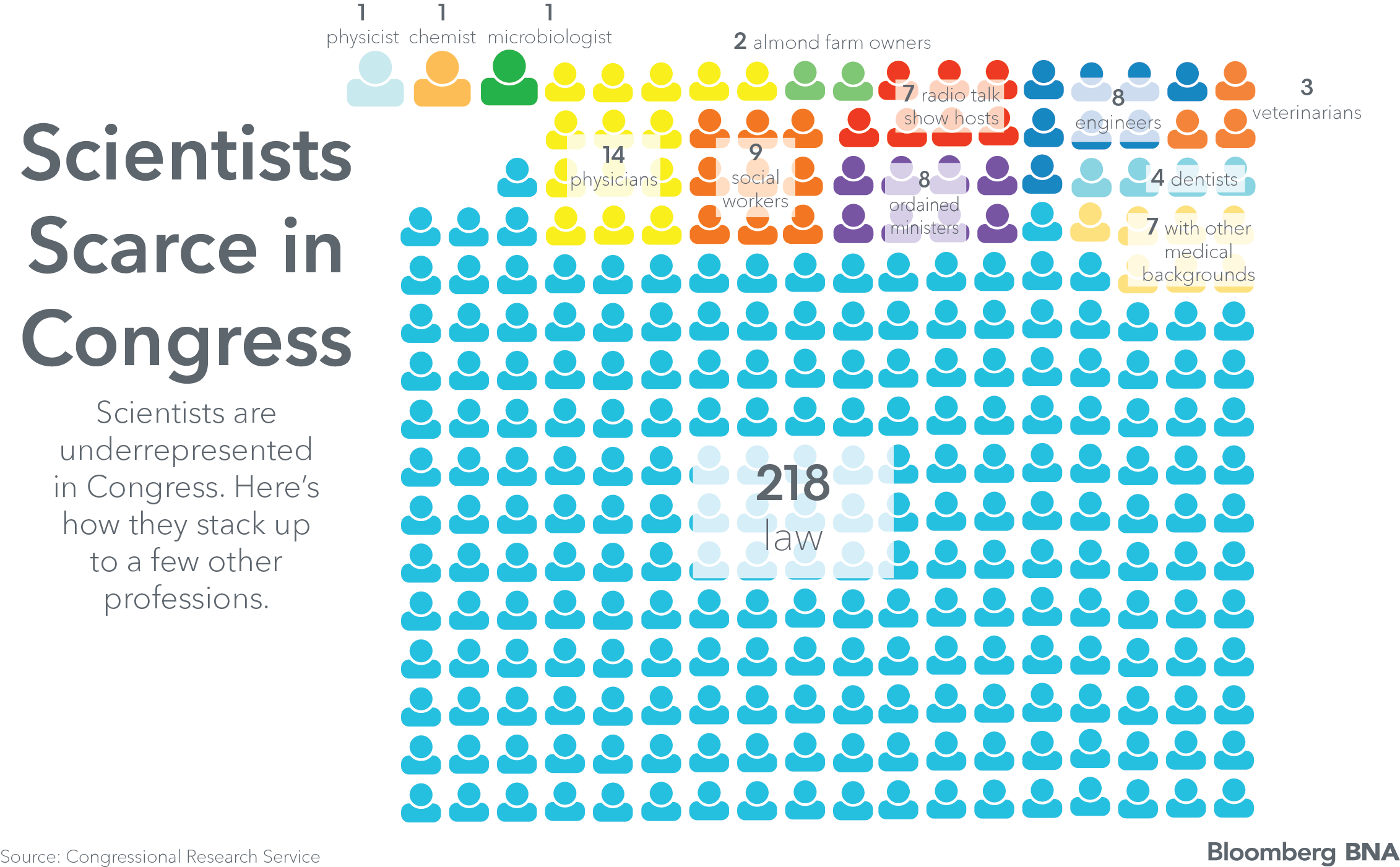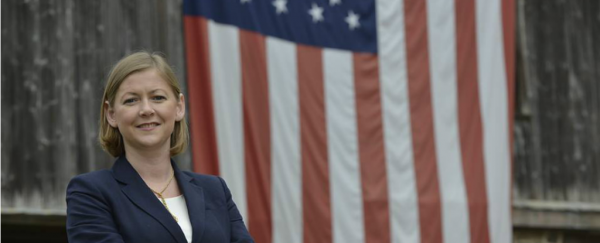Shaughnessy Naughton knows how difficult it can be for scientists to get into politics. A former scientist and researcher herself, Naughton has run for a congressional seat in Pennsylvania's 8th district twice, once in 2014 and again in 2016.
Ultimately, it was Naughton's growing concern for the state of American science that compelled her to run for office on both occasions.
"There were a lot of factors, but a big motivator was the feeling that science was under attack," Naughton told Science AF earlier this week.
Years before the election of President Trump, Naughton was worried about the way politicians misunderstood and mocked science.
"One of the things that really irked me, which politicians love to do, is mock basic research that they don't understand," she said.
Over the years, Naughton became frustrated with the many politicians who did not acknowledge how fundamental research is for the medical and technological advances we all benefit from.
And while Naughton may have never made it to Congress, her message is louder now than ever.
After the 2016 primary, Naughton founded 314 Action, a non-profit organization, named after the first three numbers of Pi, which focuses on electing more STEM candidates to office.
What started as a list of pro-science advocates, collected during Naughton's campaign, is now a nation-wide organization with a network of about a quarter of a million people, all of whom acknowledge that scientists are uniquely qualified for public office.
"I think the skills that scientists bring to governing are ones that we desperately need right now," Naughton said.
"The collaboration skills, the fact-based approach to decision making, and the focus on problem solving rather than ideology are needed not only in Congress but at all levels of government."
314 Action is founded on the belief that the public directly benefits from having politicians with a diversity of experience. Even still, there is currently a scarcity of politicians with backgrounds in science and research.

314 Action is desperately trying to change this. They have already endorsed six candidates for Congress and many more outside the federal level. Naughton says that since last year's election, they have received more interest from scientists who want to run for office, or at the very least support their cause.
"The election of Donald Trump has definitely acted as a catalyst for scientists to get engaged and get involved," said Naughton.
"Whether its running for office themselves or supporting others who are."
Since its inception, enthusiasm for 314 Action's message has been staggering. In January, the organization announced they would be holding a training session for scientists who wished to run for office. At the time, Naughton said they predicted at least a thousand people would attend. In the end, they had over 6,000 scientists voice interest in the training session.
"It's been amazing the amount of quality candidates we have been in touch with," Naughton said.
She believes that even if her candidates do not win, if they talk about the issues they are passionate about and that are important to their communities, they will still contribute to the national dialogue.
"One of the conclusions that we can draw from this 2016 election, is that people voted for change, and I would argue that scientists represent that in a much more productive way," Naughton said.
By no means is 314 Action limited to electing more scientists. Other goals of the organization include advocating for evidence-based public policy, making science more accessible to the public, and fighting to defend the integrity of science and its use.
"One of the things that we want to see is policy based on sound science," Naughton said.
And that is exactly why the organization is asking legislators to sign their "Commitment of STEM Principles." The signatures gathered for this initiative represent a commitment to the importance of scientifically-sound legislation. Already, 18 mayors have put their names down, from Philadelphia to Honolulu to Denver, Colorado.
"What we are really asking from our network is to take that passion and energy that you felt during the March for Science or even the Women's March and bring it back to your local communities and put it to work," Naughton said.
She argues part of that civic responsibility includes holding your legislators accountable when they are basing policy or law on anything other than sound science.
"Folks forget that politicians actually listen to what their constituents have to say," Naughton said.
"Even the most anti-science politician knows how to count, and they count the number of calls that come in."
Science AF is ScienceAlert's new editorial section where we explore society's most complex problems using science, sanity and humor.
